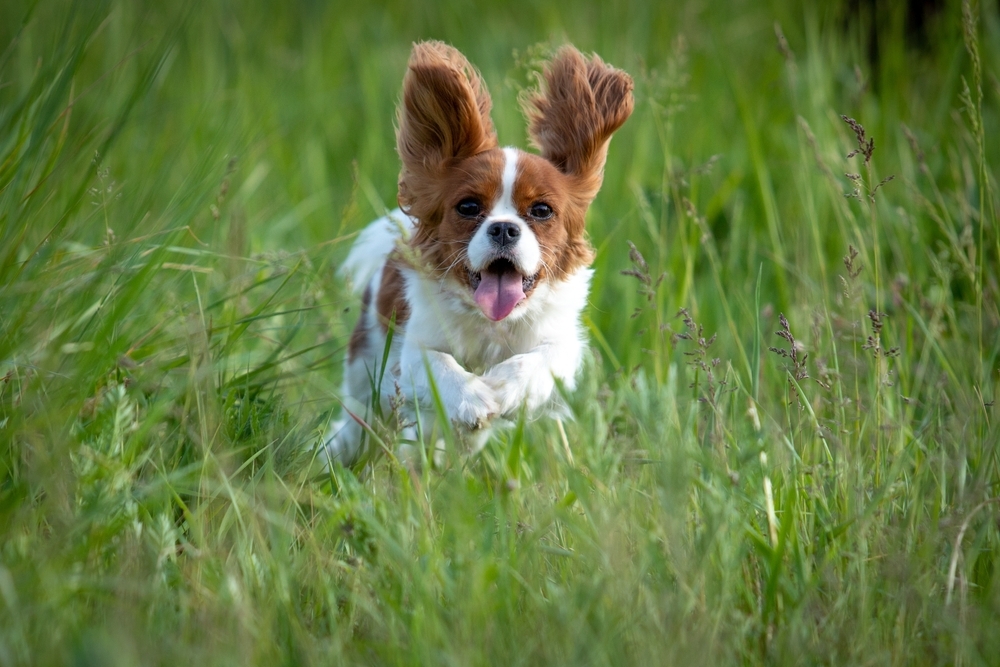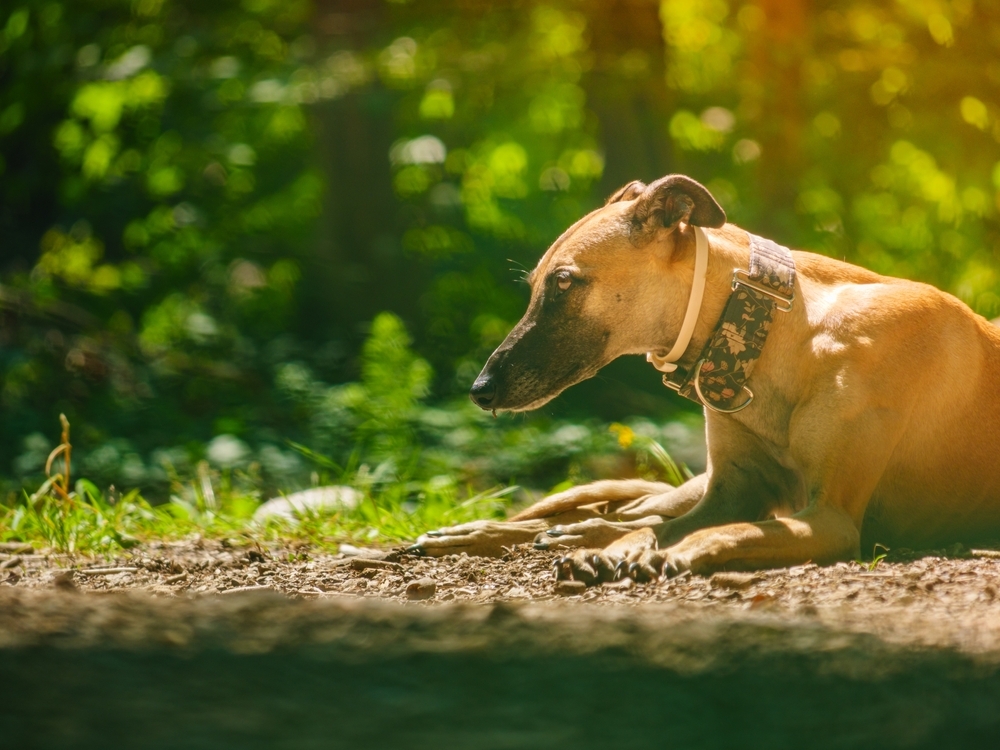Dogs can bring so much to our lives: laughter, joy, companionship, unconditional love — even health benefits. While you're thinking about the happiness a wagging tail offers, it's also important to consider your lifestyle and what type of canine companion would suit you best.
Let's look at the best dog breeds for seniors—and how the right furry friend can make your days better.
Health Benefits Dogs Offer to Seniors
Numerous studies have found that spending time with dogs decreases stress and lowers blood pressure, helps older adults maintain physical function and improves cognitive function and brain health. Canine companions can decrease depression and loneliness in homebound older adults and boost mental health in seniors by providing a sense of purpose. One study even found that pets help people age 70 and older cope with chronic pain.
Perhaps the most exciting news is that dogs help us live longer. In single-person households, people with dogs have a 33% less risk of early death after being hospitalized for a heart attack and 27% less risk after a stroke. Dog owners also have a 24% lower risk of "all-cause mortality" than people without dogs.
What to Consider When Choosing a Dog
Before welcoming a dog into your home, it's important to consider the best dog to fit your lifestyle. For example, an energetic dog who needs to run for two hours a day is not going to be a good fit for someone who only has the time or energy for a few short strolls.
Other considerations for choosing the right dog include:
-
Housing Restrictions: Some apartment rentals have strict size restrictions for dogs, such as prohibiting dogs that weigh more than 25 pounds. Landlords also might impose restrictions against breeds they think are potentially dangerous, such as German shepherds, Doberman pinschers or chows. Similarly, homeowners should make sure that their HOA doesn't have any size or breed restrictions.
-
Mobility Issues: Seniors with mobility issues will want to consider whether a caregiver, friend or family member will be available to let their dog out. It's also smart to opt for a mellow dog who won't pose a tripping hazard by darting underfoot. Well-trained big dogs can sometimes help owners balance.
-
Finances: All dogs require veterinary care, food, toys and supplies like water bowls, leashes, poop bags and collars. Certain dog breeds, like poodles and Yorkshire terriers, also need to be professionally groomed about once a month. Dogs with health conditions may need daily medication for issues like heart disease or diabetes, so budget accordingly.
-
Training: Some adopters may be looking for a "project," like training and socializing a puppy. Others might simply want an adult dog who is already house-trained and knows basic obedience skills. Consider how much time and patience a dog will need — and how much you're willing to give.
-
Climate: Think about the weather where you live. Dogs bred for life in cold climates, such as Alaskan malamutes and huskies, will not thrive in the summer heat of Florida. Conversely, tiny dogs like Chihuahuas and hairless dogs like Chinese Cresteds will need to wear jackets and booties in snowy winters.
-
Activity Levels: Active seniors might want an energetic dog who can run agility courses or join them on hiking adventures. Others might simply want a lapdog for watching TV.
-
Travel: Seniors who travel frequently on airplanes may prefer to get a little dog who can travel in the cabin with them. Dogs must be small enough to turn around in a carrier that fits under the seat.
The Best Dog Breeds for Seniors
All dogs are individuals, so expect behavior, health and temperament variations in any breed. With that in mind, some breeds are particularly popular with seniors.
Shih Tzu
.jpg)
Seniors looking for a lapdog often gravitate to the shih tzu. These "lion dogs" of Chinese ancestry were basically bred to be palace pets, so the affectionate little dogs are quite content snuggling with their favorite person as often as possible. Their luxurious coats need daily brushing and monthly trips to the groomer.
Labrador Retriever
.jpg)
For more than 30 years, Labs have been one of the most popular breeds in America — both as pets and as service dogs. They're smart, friendly, eager to please and easy to train. Even as pets, they can retrieve dropped items and learn to brace to help owners balance. Their short coats require little maintenance — although they do shed. Some Lab owners joke that dog hair is a fashion accessory.
Poodle
.jpg)
Poodles come in three sizes — toy, miniature and standard — and can be a good fit for seniors with allergies because they are as hypoallergenic as a dog can get. While large standard poodles typically require a lot of exercise and make terrific hiking buddies, the two smaller versions are typically satisfied with brisk walks around the neighborhood. They don't need the fancy haircuts you see at dog shows, but they definitely require regular trips to the groomer.
Corgi
.jpg)
With their pointy ears, stubby legs and upbeat attitudes, corgis give seniors plenty of reasons to smile. The spirited dogs will be sure to let you know when the doorbell rings. (They might be small, but their barks are mighty!) Pembroke Welsh corgis were favored companions of the late Queen Elizabeth II and are recognizable for their docked tails. People who prefer a long, wagging tail should opt for Cardigan Welsh corgis.
Yorkshire Terrier
.jpg)
Tiny Yorkies are endlessly entertaining with their love of toys and plucky personalities. The loving lapdogs can easily morph into "Velcro dogs" who will follow their favorite person from room to room, so they're great for retirees. Their hair will grow to the floor, so they must be combed often and groomed about once a month. Because they weigh less than 7 pounds, they can be wonderful travel companions for frequent fliers.
Beagles
.jpg)
Seniors with yards — and who love Snoopy — might opt for a beagle. The loyal, loving dogs enjoy spending time with people and are gentle with children, which makes playtime extra fun when grandkids come to visit. The cheerful dogs were bred as hunting hounds, so be ready for braying.
Cavalier King Charles Spaniel
.jpg)
If you're ever spent Thanksgiving watching The National Dog Show, you've probably heard co-host David Frei rhapsodize about his dogs and how "Cavs" make great therapy dogs. With their soulful brown eyes and sweet demeanor, this British breed is a charmer. They're adept at adapting to active or more sedentary lifestyles.
Greyhound
.jpg)
Greyhounds are famously fast. But after a sprint at the dog park, they're ready to lounge, so they can be surprisingly good pets for apartments. The calm, gentle breed is also beloved for being a quiet dog, which your neighbors will appreciate.
All-American Dog
.jpg)
A mixed-breed dog or mutt offers another appealing option. They're like snowflakes: No two are alike. You might find the special "unicorn" who will make your life complete.
Options to Find a Pet Abound
Once you've decided to get a dog, there's the question of where to find one. While some rescue organizations have lengthy application processes, including a home inspection, most animal shelters will process an adoption more quickly (and without restrictions on the age of the adopter). Adoption has the advantage of being more affordable than purchasing a dog from a breeder, and the staff and volunteers can share information about a dog's history, health, personality and training. Shelters had over 150 purebred dog breeds and hybrids available in the first half of this year. It's easy to search for adoptable dogs through sites like Petfinder.com and Adopt-a-Dog.org.
Additionally, the AKC Rescue Network boasts more than 450 groups nationwide with adoptable purebred dogs of 160 breeds. If you prefer to purchase a dog, make sure to meet with a reputable breeder. Beware of online scammers who will take a deposit for a puppy or dog and then disappear.
For seniors who aren't ready to permanently adopt, temporarily fostering a shelter dog can be a great alternative.
To help pet owners find financially friendly resources, the nonprofit Open Door Veterinary Collective offers a free online tool called the Pet Help Finder. Pet owners type in their ZIP code to find discounted veterinary care, boarding services and pet food pantries.
The Case for Adopting Senior Dogs
Adopting a senior dog (age 7 or older) can be a rewarding experience with appealing advantages. For starters, they're almost always house-trained. They tend to be calmer, need less exercise and won't chew up your slippers. Their personalities have formed, so staff at shelters and rescues can tell you what to expect.
Most senior dogs land in shelters through no fault of their own, and sadly, only about half find forever homes. Senior dogs can be ideal companions for senior humans, however, so shelters increasingly offer Seniors for Seniors programs with discounted or waived adoption fees for people over 60 who adopt dogs age 7-plus.
BrightStar Care® Can Help
BrightStar Care® caregivers can help seniors acclimate to fostering a companion. Whether you're looking for in-home care services for your loved one or a reliable medical staffing partner for your organization, our experienced local care team members are ready to help. Find a location near you, contact us online or call (866) 618-7827 to learn more about how BrightStar Care® offers A Higher Standard®.
